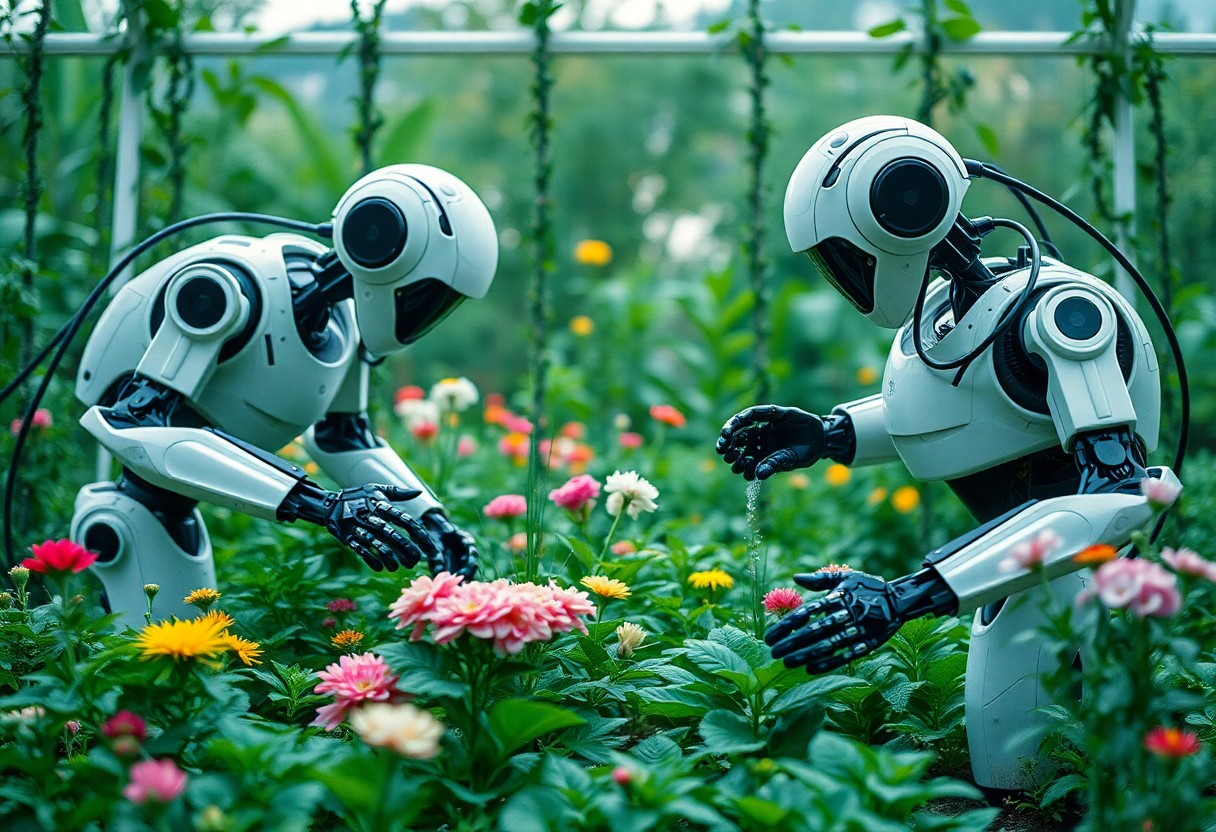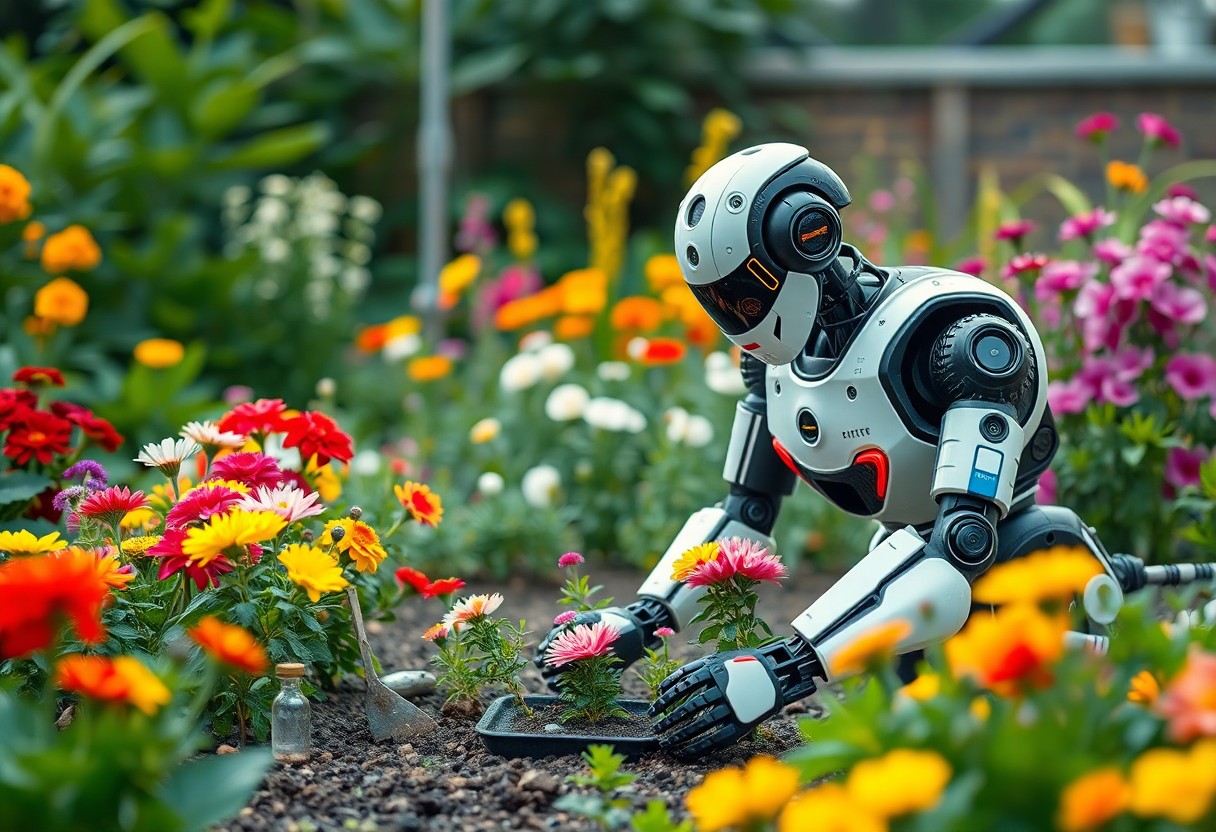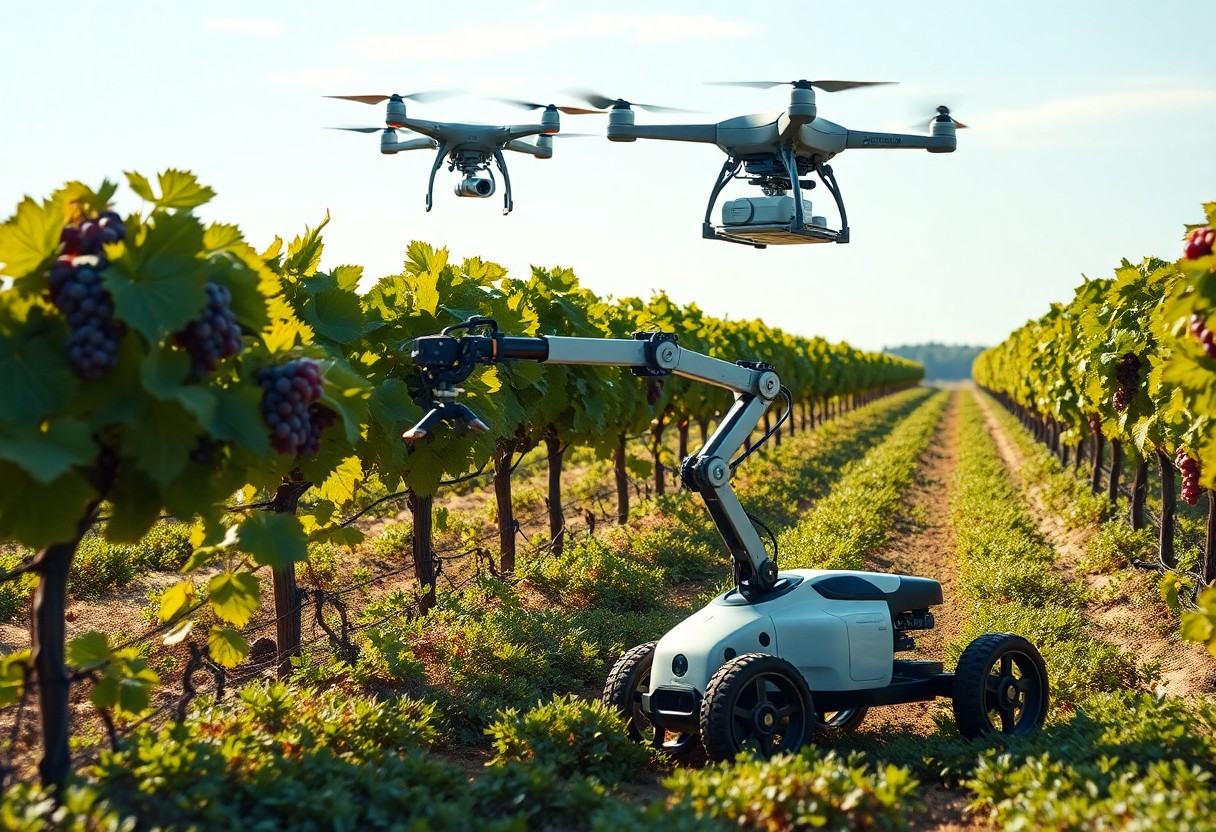It’s amazing how intelligent machines are transforming your gardening experience by taking on labor-intensive tasks. Whether you are a seasoned gardener or just starting out, these innovative tools help streamline the process, allowing you to spend more time enjoying your garden rather than toiling away. From robotic lawn mowers to automated irrigation systems, these technologies alleviate the physical challenges of gardening, increase efficiency, and empower you to cultivate your green space with greater ease and effectiveness.
Transforming Traditional Practices: The Role of AI in Gardening
Traditionally, gardening relied heavily on manual labor and the gardener’s intuition. Now, integrating artificial intelligence into these practices redefines how you approach your plants. From predictive analytics to automated systems, AI tools streamline tasks and enhance your gardening experience. The technology enables you to cultivate healthier, more productive gardens and saves you valuable time and resources without compromising on results.
Precision Farming and Data Analysis
Precision farming uses advanced sensors and data analytics to optimize your gardening efforts. Analyzing soil composition, weather patterns, and plant growth lets you make informed decisions about nutrients and layouts. For instance, by evaluating temperature and moisture levels, smart technology can prescribe the right amount of fertilizer, significantly improving your yield and ensuring that resources are used efficiently.
Intelligent Irrigation Systems
Intelligent irrigation systems are revolutionizing how you water your plants. These automated setups adjust water delivery based on real-time data, ensuring your plants receive just the right amount without waste. This benefits both your plants and the environment, as overwatering is minimized, preserving water resources.
By utilizing soil moisture sensors and weather forecasts, intelligent irrigation systems analyze conditions and adjust watering schedules accordingly. For example, if rainfall is forecasted, the system can pause irrigation, safeguarding against over-saturation. With studies showing water savings of up to 50%, these innovations not only conserve critical resources but also reduce your maintenance efforts, allowing you to focus more on other enjoyable aspects of gardening.
Autonomous Solutions: The Rise of Robotic Gardeners
With the advent of autonomous technology, robotic gardeners are becoming integral to modern horticulture. These intelligent machines reduce manual effort while optimizing your garden’s productivity. From intelligent planting systems to automated weeders, robots are reshaping traditional gardening practices. Explore more about the innovation in this field in The Future of Gardening: How AI Gardening Tools are Changing the Game.
Robotic Lawn Mowers and Their Impact
Robotic lawn mowers have revolutionized lawn maintenance, effortlessly cutting grass on your behalf. Equipped with advanced sensors and GPS technology, these mowers navigate your yard, ensuring precise and uniform grass length. Many models can be programmed to operate on specific schedules, giving you more free time to enjoy your lush, neatly trimmed outdoor space.
Drones in Crop Monitoring and Maintenance
Drones are proving invaluable in crop monitoring and maintenance. They allow you to aerially survey vast agricultural landscapes, providing real-time data on crop health, moisture levels, and pest infestations. This technology enables precise interventions, ultimately enhancing yield and ensuring sustainable practices.
Equipped with high-resolution cameras and multispectral sensors, drones analyze crop health by detecting variations in plant vigor. By capturing detailed imagery, they identify areas needing attention, allowing you to apply fertilizers or pesticides more effectively. This targeted approach minimizes waste and maximizes productivity, reflecting advancements in precision agriculture that rely on data-driven insights to empower your gardening strategies.
Enhancing Biodiversity: AI’s Contribution to Eco-Friendly Gardening
Intelligent machines are not only transforming the efficiency of gardening tasks but also playing a pivotal role in enhancing biodiversity. By utilizing data analytics and machine learning, you can make informed decisions that promote a healthy ecosystem within your garden. These AI systems analyze plant diversity, provide insights into native species, and suggest companion planting techniques. With smart algorithms, you can receive tailored recommendations on how to create habitats for beneficial insects and birds, ensuring a vibrant, balanced garden ecosystem that thrives in harmony with nature.
Pest Management Through Machine Learning
Machine learning algorithms can significantly improve pest management strategies, allowing you to identify and control outbreaks more effectively. By analyzing patterns in data collected from sensors and cameras in your garden, AI can predict pest populations and recommend precise treatments. This targeted approach minimizes chemical usage, thereby supporting a healthier environment. For instance, one study showed that machine learning models reduced pesticide application by over 30% while maintaining crop yields.
Soil Health Monitoring and Improvement
Monitoring soil health is vital for achieving optimal gardening success, and AI-driven systems excel at this task. By employing sensors and analytic tools, you gather real-time data on pH levels, moisture content, and nutrient availability. This information allows you to make educated decisions about soil amendments and crop rotations. A growing number of applications provide personalized insights to help you enhance soil vitality, ensuring lasting fertility and resilience in your garden.
Investing in soil health monitoring technology offers you a deeper understanding of your garden’s specific needs. Advanced sensors can track various parameters, such as soil temperature and microbial activity. Utilizing this data, AI systems can make recommendations to balance nutrient levels and improve organic matter content. For example, you might discover the advantages of integrating cover crops or composting techniques to foster soil microbial life. Continuous monitoring not only promotes sustainable gardening practices but also nurtures long-term health, ultimately resulting in more abundant yields and a thriving ecosystem.
The Economic Upsides: Cost Efficiency and Resource Optimization
Utilizing intelligent machines in gardening significantly lowers costs and enhances resource management. Automated systems streamline tasks such as planting, watering, and harvesting, leading to reduced expense ratios for both hobbyists and large-scale agricultural operations. By minimizing waste and optimizing resource use, these technologies not only cut down immediate costs but also promote sustainability in gardening practices.
Reducing Labor Costs Through Automation
Automated gardening equipment, like robotic lawn mowers and smart watering systems, drastically decrease the need for human labor. This automation can lead to savings of up to 30% on labor costs, allowing you to allocate resources more efficiently while maintaining an aesthetically pleasing and healthy garden. Consequently, you can invest savings into other enhancements or expansions for your gardening projects.
Maximizing Yield with Advanced Technology
Advanced technologies such as precision agriculture and drone monitoring help increase crop yields and optimize growing conditions. By leveraging data analytics, you receive real-time insights into soil health, moisture levels, and pest movements. Such information enables you to make informed decisions for improving plant growth, potentially increasing yields by as much as 20-30% over traditional practices.
- Precision irrigation systems minimize water usage, ensuring plants receive just the right amount.
- Soil sensors monitor nutrient levels, enabling targeted fertilization strategies.
- Drones can assess plant health and detect issues early, reducing losses due to disease.
| Benefits | Details |
| Improved Efficiency | A streamlined approach ensures resources are used optimally. |
| Increased Profitability | Higher yields can lead to greater profits for your gardening endeavors. |
| Sustainability | Smart practices enhance environmental stewardship, earning favor in the community. |
Maximizing yield through advanced technology not only amplifies your gardening success but also supports sustainable practices. For instance, using sensor-driven irrigation systems can cut water consumption by up to 50%, while enhancing crop output. This synergistic relationship between efficiency and sustainability positions you as a forward-thinking gardener, ready to embrace the future of agricultural innovation.
- Utilization of data-driven decision-making tools enhances your garden’s productivity.
- Engagement with smart technologies cultivates a more resilient agricultural ecosystem.
- Adaptive strategies derived from analytics foster continuous growth improvements.
| Impact | Significance |
| Higher Crop Resilience | Better preparation and response strategies defend against ecological challenges. |
| Data Transparency | Real-time data offers insights that were previously inaccessible to most gardeners. |
| Community Engagement | Sharing technology solutions builds cooperative networks and local advocacy. |

Shifting Perspectives: The Future of Gardening with Intelligent Machines
As intelligent machines reshape the gardening landscape, your perception of gardening is bound to evolve. These technologies are not just tools; they are redefining how you interact with nature, optimizing labor, and creating new possibilities for landscape design. The integration of artificial intelligence and smart systems means you can now manage your garden with enhanced precision, allowing for more time to enjoy its beauty rather than laboring over it. The future promises a harmonious blend of automation and personal touch, enabling you to cultivate vibrant spaces with minimal effort.
The Evolving Gardener’s Role
Your role as a gardener is transforming from manual labor to strategic oversight. With intelligent machines taking care of routine tasks like watering, weeding, and soil monitoring, you can focus on the creative aspects of gardening, such as designing layouts and selecting plants. This shift allows you to embrace gardening as an art form, while the machines handle the technicalities, enhancing both your experience and results.
Ethical Considerations and Sustainability Challenges
Adopting intelligent machines in gardening raises important ethical considerations and sustainability challenges. Striking a balance between technology reliance and environmental stewardship is vital as these machines emerge. You must consider not only the carbon footprint from their production and operation but also their impact on biodiversity and local ecosystems. Thoughtful integration of these technologies requires considering their effects on soil health, water usage, and the larger ecosystem.
The ethical dimension includes questions about data ownership and privacy if your gardening practices are monitored by connected devices. Additionally, relying heavily on machines can lead to a disconnect from the natural processes and rhythms of gardening. As you embrace these advancements, it’s vital to prioritize sustainability, ensuring your use of intelligent machines supports, rather than undermines, the health of the environment. Evaluating eco-friendly options for resources, collaborating with local experts, and incorporating traditional gardening practices alongside modern technology can help mitigate potential downsides while optimizing benefits.
Final Words
As a reminder, intelligent machines have significantly transformed gardening by streamlining tasks and reducing physical labor. Whether you are using robotic lawnmowers, automated watering systems, or smart sensors, these technologies allow you to manage your garden more efficiently, giving you more time to enjoy your outdoor space. By incorporating these innovations, you can elevate your gardening experience, ensuring that it requires less effort and yields better results. Embracing these advancements will not only enhance your gardening practices but also help you cultivate a more sustainable environment.







